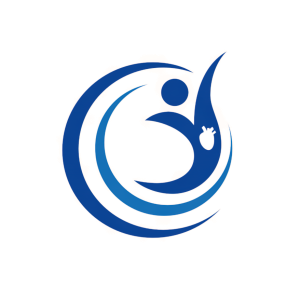XORTX Announces Publication of Key Research in ADPKD
CALGARY, Alberta, April 22, 2024 (GLOBE NEWSWIRE) -- XORTX Therapeutics Inc. ("XORTX" or the “Company”) (NASDAQ: XRTX | TSXV: XRTX | Frankfurt: ANUA WKN: A3UNZ), a late-stage clinical pharmaceutical company focused on developing innovative therapies to treat progressive kidney disease, is pleased to announce a research paper titled “Raising serum uric acid with a uricase inhibitor worsens PKD in rat and mouse models" has been accepted for publication in the peer-reviewed American Journal of Physiology-Renal Physiology and published online April 19, 2024.
This study reports health consequences associated with increasing serum uric acid (“SUA”) in mice or rat models of Autosomal Dominant Polycystic Kidney Disease (“ADPKD”), specifically the effects of increasing SUA on cyst growth and kidney size. Cyst genesis and cyst growth (together “cyst index”) and their rates of change are important indicators of disease progression and are correlated with declining filtering capacity and end stage renal disease (“ESRD”). This study shows, for the first time, that chronically increased SUA can significantly increase cyst index and increase kidney size in ADPKD.
According to the study’s findings, saturating concentrations of SUA contributing to “crystal injury” were not necessary to negatively alter both structure and function of the ADPKD kidney. Moderately high SUA concentrations were also found to be associated with an increased inflammatory state (cytokine profile) in both serum and kidney tissue. Independent of the modifying effects of chronically increased SUA, a fundamental new discovery from this study was that over expression of xanthine oxidase (“XO”) in kidney tissue was present, suggesting aberrant purine metabolism may be present in ADPKD and suggesting a possible role of XO in disease progression.
When considered together, SUA above the normal range and overexpression of XO, especially in the location of cysts, in an ADPKD kidney represents a strong impetus for the use of XO inhibition to attenuate this newly described mechanism of injury. Inhibition of XO using XORLO™, XORTX’s proprietary formulation of oxypurinol, substantially lowered uric acid concentrations, attenuated the effects of chronically increased SUA on cyst index and kidney size in the RC/RC mouse model of ADPKD in this study.
Dr. Allen Davidoff, CEO of XORTX, stated, “We are pleased to have supported this pioneering research in polycystic kidney disease by Dr. Charles Edelstein of the University of Colorado. Identifying for the first time that increased serum uric acid and possibly overexpression of xanthine oxidase in the ADPKD kidney can accelerate disease progression has substantial implications. This study provides important novel insight into one modifying factor that has the potential to accelerate ADPKD progression. In human ADPKD, kidney size and declining kidney filtering capacity are correlated and are key indicators of disease progression and prognosis. Identifying any modifiable factor that explains variable outcomes in individuals with ADPKD is a seminal step forward in our understanding of this disease. XORLOTM was shown to attenuate this effect. In concept, XORLOTM should be capable of attenuating both of these modifiable factors. These mechanistic studies are important for the planning of future clinical studies of xanthine oxidase inhibition in patients with ADPKD.”
About ADPKD
ADPKD is a rare disease that affects more that 10 million individuals worldwide.1,2 ADPKD is typically diagnosed based upon expansion of fluid-filled cysts in the kidneys. Over time, the increasing number and size of cysts can contribute to structural and functional changes to kidneys and is frequently accompanied by chronic pain which is a common problem for patients with ADPKD.3 Expansion of cysts is thought to compress healthy functioning tissue surrounding the cysts and contribute to further loss of kidney function, fibrosis, impaired nutrient exchange and impaired kidney function, accompanied later by end-stage renal disease.1 For individuals with progressing ADPKD, treatment recommendations include anti-hypertensive treatment, dietary restrictions, and, for a limited percentage of suitable patients, pharmacotherapy.4 New, more broadly applicable therapies to effectively slow decline of kidney function in ADPKD are needed.
References:
- Wiley C., Kamat S., Stelhorn R., Blais J., Analysis of nationwide date to determine the incidence and diagnosis of autosomal dominant polycystic kidney disease in the USA, Kidney Disease, 5(2): 107-117, 2019
- Bergmann C., Guay-Woodford L.M., Harris P.C., Horie S., Peters D.J., Torres V.E., Polycystic Kidney Disease, Nat Rev Dis Primers. 4(1): 50, 2018
- https://pkdcure.org/living-with-pkd/chronic-pain-management/
- Gimpel C., Bermann C., Bockenhauer D., et al., International consensus statement of the diagnosis and management of autosomal dominant polycystic kidney disease in children and young people, Nat Rev Nephrol 15(11):713-726, 2019
Communications and Social Media Engagements
Further to the Company’s press release of April 8, 2024, XORTX continues its participation in important healthcare and investor conferences, including most recently the Noble Capital Markets Emerging Growth Virtual Healthcare Equity Conference and the CEM Scottsdale Capital Event. Additional information on how to listen to webcast presentations, where available, will be provided at a later date. The Company is also augmenting investor awareness through the engagement of marketing and communication consultants, including:
- LFG Equities has been engaged to provide marketing consulting and market communications services, for a fee of US
$50,000 for a one-month period. The LFG Equities engagement can be extended by mutual consent and can be terminated by XORTX upon 10 days’ notice.
- IRPUB has been engaged to provide a XORTX awareness campaign for a fee of US
$40,000 for a term of four months. The IRPUB engagement can be extended by mutual consent and can be terminated by XORTX at that time.
- FeMax Publishing and Consulting Ltd. has been engaged to analyze and assess European communications and investor contact outreach in Europe. The term of the contract is for 12 months with the assessment services at a monthly fee of
€3,500 and the European Awareness campaign at a monthly fee of€8,500. T he FeMax Publishing and Consulting engagement can be extended by mutual consent.
About XORTX Therapeutics Inc.
XORTX is a pharmaceutical company with two clinically advanced products in development: 1) our lead, XRx-008 program for ADPKD is in preparation to conduct a single registration trial – XRX-OXY-201, that is eligible for accelerated approval; and 2) our secondary program in XRx-101 for acute kidney and other acute organ injury associated with Coronavirus / COVID-19 infection. In addition, XRx-225 is a pre-clinical stage program for Type 2 Diabetic Nephropathy. XORTX is working to advance its clinical development stage products that target aberrant purine metabolism and xanthine oxidase to decrease or inhibit production of uric acid. At XORTX, we are dedicated to developing medications to improve the quality of life and future health of patients. Additional information on XORTX is available at www.xortx.com.
For more information, please contact:
| Allen Davidoff, CEO | Nick Rigopulos, Director of Communications |
| adavidoff@xortx.com or +1 403 455 7727 | nick@alpineequityadv.com or +1 617 901 0785 |
| Kim Golodetz, LHA Investor Relations | |
| kgolodetz@lhai.com or +1 212 838 3777 |
Neither the TSX Venture Exchange nor Nasdaq has approved or disapproved the contents of this news release. No stock exchange, securities commission or other regulatory authority has approved or disapproved the information contained herein.
Forward Looking Statements
This press release contains express or implied forward-looking statements pursuant to applicable securities laws. These forward-looking statements and their implications are based on the current expectations of the management of XORTX only, and are subject to a number of factors and uncertainties that could cause actual results to differ materially from those described in the forward-looking statements. Except as otherwise required by applicable law and stock exchange rules, XORTX undertakes no obligation to publicly release any revisions to these forward-looking statements to reflect events or circumstances after the date hereof or to reflect the occurrence of unanticipated events. More detailed information about the risks and uncertainties affecting XORTX is contained under the heading “Risk Factors” in XORTX’s Annual Report on Form 20-F filed with the SEC, which is available on the SEC's website, www.sec.gov (including any documents forming a part thereof or incorporated by reference therein), as well as in our reports, public disclosure documents and other filings with the securities commissions and other regulatory bodies in Canada, which are available on www.sedarplus.ca.








